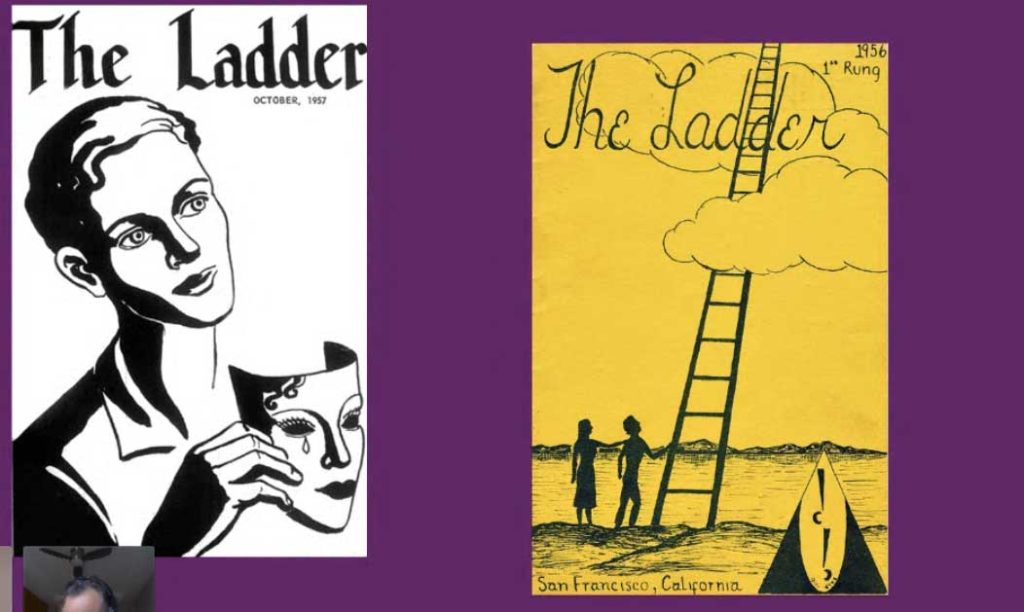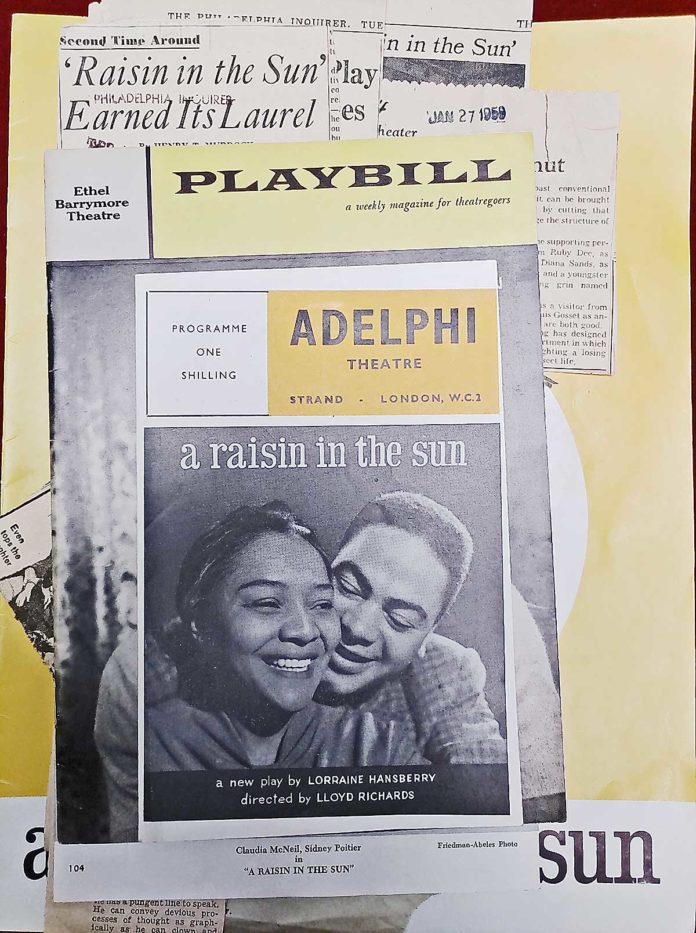Black author, playwright, activist and journalist Anita Cornwell has seen and participated in the struggle for LGBTQ rights since it began in this country. She came out in the late ‘40s, two decades before the Stonewall Riots, was a member of Daughters of Bilitis and founding member of the Philadelphia chapter of Radicalesbians, and she wrote for many publications, including the Feminist Review, BLACK/OUT, and The Ladder, one of the first lesbian publications in the U.S.
Yet most LGBTQ Philadelphians don’t know who Cornwell is, despite the fact that she still lives in Germantown at the age of 97.
In a collaborative effort between staff of the Free Library, the Rosenbach Museum and courtesy of the John J. Wilcox Archives at the William Way LGBT Community Center, two local researchers delivered presentations on Cornwell and three other queer authors and playwrights of the 19th and 20th centuries. The presentations took place virtually on Sunday, June 28.
Archivist Ainsley Wynn Eakins presented on Cornwell’s life and her works, which contain themes of feminism and racism during a time when writing about either topic was considered radical. Cornwell grew up in a Black, working class family in the Jim Crow era, and details in some of her memoirs that she grew up hearing “about lynchings and violence.”

Some of Cornwell’s noteworthy works include “A Black Lesbian in White America,” and the short stories “A Sound of Crying,” “Save a Round for Jamie Brown” and “One Man’s Story.”
“These are short tales about Black men who lead riots against the police or against KKK terrorists in their community,” Eakins explained.
In addition to writing about violence and the Jim Crow south, Cornwell wrote about segregation, the Great Migration, women’s health, O.J. Simpson, the Black Panther party and the MOVE bombing. She also wrote about the writer and playwright Lorraine Hansberry, another author discussed during the presentation.
“These are the events that she lived through,” Eakins said, “that we see now are so foundational of our public memory and our current calls for reform.”
Eakins closed their presentation with a slide on the Cornwell House in Philadelphia’s Powelton Village neighborhood, owned by Drexel University.
“Every time I walk by it, it’s kind of a sad reminder that there’s not a memorial there to Anita Cornwell and her history here in Philadelphia,” Eakins said to the crowd. “It’s a shame that so much of Black queer history and the Great Migration is sometimes covered up [at the hands of] gentrification.”

Free Library special collections coordinator J. Eytan Shemtov, who opened the program, echoed Eakins’ sentiments.
“Have you ever heard of Anita Cornwell? Isn’t that tragic that somehow the people who are living in Philadelphia –– yeah, we’ve heard of [Oscar] Wilde –– but the people who are living in our neighborhood are the ones that no one has ever heard of. That’s why I loved [Ainsley’s] presentation.”
Andrew White, who works as volunteer coordinator for the Rosenbach and gives tours in the Free Library’s rare books department, shared his research on three other important queer authors: American theater actress Charlotte Cushman, poet and playwright Oscar Wilde and Hansberry.
White’s presentation manifested in the form of short overviews of the authors’ works and lives. He talked to the virtual audience about Cushman’s acting career, in which she played both male and female roles, including Romeo and Hamlet, “due to her deep, contralto voice.”
Although Cushman performed up and down the Eastern U.S. and throughout Europe, “Philadelphia had a special place in Cushman’s legacy through the Charlotte Cushman Foundation, which provides grants to non-profit theater companies in the Philadelphia area to fund actors’ salaries,” White told the audience.
In his coverage of Wilde’s life, White showed sketches and drafts of poems from one of Wilde’s notebooks, and focused on the poem “Antheia,” or the goddess of flowers and floral wreaths. The poem’s cast of characters include three pairs of godly and human lovers, including Juno and Ganymede, the latter described as “a beautiful young man.” In Rubens’ painting depicting the myth, White showed the audience, Zeus descends as an eagle to fly Ganymede to heaven.
White contrasted a line in Wilde’s published poem to a line in its draft –– the published version describes Ganymede as “frightened” when Zeus comes down to take him to Mount Olympus, while Wilde’s draft described Ganymede as “laughing” when Zeus came for him.
“In Greek mythology, gods and heroes….have male and female lovers, and that would have been known to many readers of this poem,” White said in his presentation. “When ‘laughing’ changes to ‘frightened,’ it makes me wonder if Wilde edited this to make [Zeus and Ganymede’s relationship] more acceptable to the homophobic society of his day.”
White’s discussion of Hansberry consisted largely of her literary works, including her famous play “A Raisin in the Sun,” as well as letters she wrote in the 1950s to “The Ladder.”
White shared the Philadelphia Inquirer’s review of “A Raisin in the Sun.” It reads: “If the true functions of drama are to stimulate, perhaps harass the conscience, mourn defeat, cheer aspirations and sing to courage, and I believe they are, then Lorraine Hansberry’s A Raisin in the Sun meets these obligations in fuller measure than any play we’ve seen this season.”
“Hansberry’s life is fascinating because she’s one of the people that can write fiction, plays, poetry –– who can write from the creative side of the mind and also makes these incredible, cogent, insightful arguments on the kind of essay/nonfiction part of the mind,” White told PGN. “It’s fascinating to read her thoughts on activism.”
For those interested in viewing the presentation, please visit https://www.crowdcast.io/e/virtual-hands-on-history-3/regist
